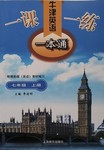题目内容
After Christmas, I took a job in the clothes department at Graham’s for the first fortnight of the January sale. I can’t say that I enjoyed it, but it was an experience I’ll never forget.
I could never understand why there were so many things in the sales. Now I know the secret! Firstly, there is the special winter stock and the stock that people buy all the year round. Some of these things are slightly reduced. Secondly, there are the summer clothes they couldn’t sell last year; these are heavily reduced to clear them. Thirdly, there are cheap clothes bought in especially for the sales; these are put out at high prices ten days before the sale begins and then are reduced by 60% in the sale. Lastly, they buy in “seconds” for the sale and they are sold very cheaply.
When I arrived half an hour before opening on the first day of the sale, there was already a queue around three sides of the building.
When the big moment arrived to open the doors, the security guards, looking less confident than usual, came up to them, keys in hand. The moment they had unlocked the doors, they hid behind the doors for protection as the noisy crowd charged in. I couldn’t believe my eyes; this wasn’t shopping. It was a battlefield! One poor lady couldn’t keep her feet and was knocked over by people pushing from behind.
Clothes were flying in all directions as people searched for the sizes, colors and styles they wanted. Quarrels broke out. Mothers were using their small children to crawl through people’s legs and get hold of things they couldn’t get near themselves.
Within minutes I had half a dozen people pushing clothes under my nose, each wanting to be the first served. Where had the famous English queue gone? The whole day continued like that, but I kept my temper! I was taking money hand over fist and began to realize why, twice a year, Graham’s were happy to turn their expensive store into a battlefield like this.
In the sale fever, people were spending money like water without thinking if they needed what they were buying. As long as it was a bargain, it was OK.
You won’t believe this, but as soon as I got home, I crashed out for four hours. Then I had dinner and went back to bed, fearing the sound of the alarm which would tell me to get ready for the second day of the sale.
What kind of clothes is likely to be sold only a little cheaper according to the passage?
A. Last summer’s clothes. B. Clothes not in perfect condition.
C. Clothes bought in specially for the sales. D. Clothes for winter.
Which of the following statements is TRUE according to the passage?
A. The customers gave up the queuing as soon as the sale began.
B. The customers kept their temper while looking for clothes they wanted.
C. Small children were not helpful to their mothers in the sale.
D. The security guards of the clothes department were as confident as usual.
【小题1】D
【小题2】D
解析:
略

 开心蛙状元作业系列答案
开心蛙状元作业系列答案 课时掌控随堂练习系列答案
课时掌控随堂练习系列答案 一课一练一本通系列答案
一课一练一本通系列答案 浙江之星学业水平测试系列答案
浙江之星学业水平测试系列答案